 LISTEN UP. OR NOBODY ELSE EVER WILL.
LISTEN UP. OR NOBODY ELSE EVER WILL.
Hello, fellow novelists.
I once tried to write a book in partnership with a close friend. This particular friend was a very good friend, but he had one character flaw: he never listened.
You’ve seen a lot of people like that. Even as you’re discussing or arguing with him, behind his eyes you can see the wheels turning…and you know he is basically ignoring your argument or your point or what you said and instead is thinking of his own next statement.
Well, needless to say, this friend of mine and I never finished our joint book, because even though my pal was a wonderful writer, he had never listened, never heard anybody speak. and thus was totally unable to write dialogue. And that is an unforgivable sin in this business.
Because dialogue is the easiest, fastest and best way to involve your readers with your subject, your story, your characters, your writing. The fanciest long description of the snow storm slowly cresting the nearby mountain may indeed be beautiful writing but meh, who cares?
Elmore Leonard once said he made his books move by leaving out the parts that people find boring, and Mark Twain would occasionally parody such over-the-top nature writing, by doing a flowery description and then ending the section with something like, “John was so overjoyed at the scene’s beauty that he flapped his arms and began flying toward the sunset.”
He was proving Elmore Leonard’s point because Twain said he never got a complaint about his lunatic ending of a scene, because nobody ever read them to the end.
But back to the real world; give us this instead:
“Take your hand off my leg,” the duchess snarled. “What do you think I am?”
“I know what you are. You’re just what you were fifteen years ago when you were turning tricks for $2 on the Weehawken ferry under the name of Blow-Blow LaFlume.”
Come on, own up. You know you’re going to read the next sentence. And that’s the power of dialogue. Or at least its potential power because there is dialogue and then there is junk. Eschew the junk.
A point in advance. Dialogue is defined as the reported speech of two or more people. Technically, one person doesn’t do dialogue but we writers don’t have to be nitpicky. Often when we talk about great dialogue, we’re talking about a monologue from only one character. It doesn’t matter what you call it, so long as you can call it good.
I hope some of the points I make in this piece will help some writers. But some can’t be helped. The friend I mentioned failed at fiction because every one of his characters sounded exactly alike and they all sounded like him.
So there’s a lesson: if thou wouldst be a talented writer of speechifying, first be a good listener. And then don’t be an idiot. You’re a writer and thus, by definition, one of the smart people in the world. So why should anyone write something like this which I read yesterday?
“I rekkin so,” he said. Note to author: “reckon” is spelled r-e-c-k-o-n. Spelling it r-e-k-k-i-n does nothing, except prove that you are probably a tasteless idiot. “Rekkin” doesn’t change the pronunciation; and if you think it’s dialect and tells something about the character; you’re wrong. It’s dumb and it says that maybe you are too.
So back to the question of the day and every day. How do you make characters sound different from each other? By hearing them speak. Do I really need to tell you that there’s a difference in the ways that Sherlock Holmes speaks and John Wayne and Clint Eastwood and Dame Judith Dench and Roseanne Barr?
Probably each person you write in your books will have a different background, a different point of view, and a different stake in the story. One might be a full-speed-ahead-damn-the-torpedoes cop trying to solve a crime and the other might be a Harvard trained neurosurgeon who did in the old battleaxe with a chainsaw and is trying to hide that.
When you write their dialogue though, no matter who they are, keep it simple and believable. If, author, you can’t say it, don’t write it. And that’s good advice — even if you don’t speak each line of dialogue outloud to hear it, you can mumble it to yourself. It’s a very good filter.
Why is dialogue so important? Because it is an active way of giving information to your reader, rather than the passive way of an author’s voice doing description. If Edgar says, “Damn, I feel miserable,” I am quite certain that carries more intellectual and psychological heft than you writer, penning “Edgar felt miserable.”
To reiterate an earlier point: basically you’re better off, the less you use ethnic speech or dialect. If it’s necessary, you can use just an occasional word to signify the whole. C’mon, if you wanted to write a thirteen-year-old Justin Beiber fan, you’d go nuts transcribing her dialogue accurately. But if you use “like” for every third word of her blathering or a couple of other tipoff words, that might do the job quite nicely, thank you. I once wrote a story in which the detective identified the murderer because, even though he claimed to have come from the midwest, the killer spoke a couple of phrases that were strictly Pennylsvania Dutch. And that was the tipoff.
One of the best books covering dialogue as well as other aspects of the novel-writing business is Leonard Bishop’s “Dare to Be a Great Writer,” which the late Mister Bishop indeed was.
Among his best rules: keep the dialogue short. Four sentences is a speech. More than that, break it up. Let something happen. Let the speaker be responded to or questioned by another character. Let’s face it; nobody gets a a chance to speak for five sentences in a row without being interrupted. Only three sentences if we’re talking about a man in the presence of his wife.
That all might sound arbitrary and probably is, but for 99 percent of your life, it’s a novel-writing rule you can use. As Bishop says “dialogue is one of the simultaneously obvious yet subtle writing devices.”
And every piece of dialogue does not have to be Henry V’s speech at Agincourt. It will suffice if it does the job of informing and entertaining and holding the attention of the reader. It does not have to be over the top like the oft-praised Quentin Tarantino whose stuff is mostly just a collection of non-sequiturs . I realize mine may be a minority opinion; but I find Quentin Tarantino tedious.
Once again, the final rule remains the same. Take notes. Write. Take more notes, Write some more. Try to follow these easy rules:
In your writing, only one character speaks in any given paragraph. A new speaker needs a new paragraph. This makes it easier for your reader to follow and gets rid of a lot of the “he saids” and “she saids.”
And please: no stupid taglines. You know the kind. “He spat venomously.” Or “she hissed seductively.” (Very often, that last one is used by those with tin ears to describe a spoken line that has no s’s in it. How can you hiss something that doesn’t contain an “s?”
And try to avoid repetitious patterns. Such as:
“You ought to go to the circus.”
“I don’t want to the circus.”
“Come on. Let’s go to the circus.”
“I don’t want to go to the circus.”
Maybe in some context, that would be almost bearable but overdone, it will put every reader to sleep — almost as quickly as its polar opposite, verbal diarrhea.
Let’s be honest. In real life, you rarely get to talk for three or four uninterrupted sentences. (If you’re married, rarely for two.) Don’t think you are really giving them character by letting them bloviate forever. When they say what they have to say, make them shut up.
That’s just a couple of basic ground rules. The most important rule, however, is this one: make the dialogue believable. Make the characters sound like living, breathing people.
I was in a bar once….(don’t act shocked; you know my habits by now.) and I was sitting near two guys who were watching a hockey game. The younger guy said, “I hate him.” The older guy just nodded.
The younger guy said again, “I hate him a lot.” And the old guy finally said, “That’s Wayne Gretzky. He’s 19 years old and he’s the greatest hockey player that ever lived. And you, you’re 21 years old and you won’t even buy a drink, you cheap son of a bitch.”
It went into my notebook and then one day years later into a book. Do the same thing. Keep your notebooks up to date. And comb your hair.




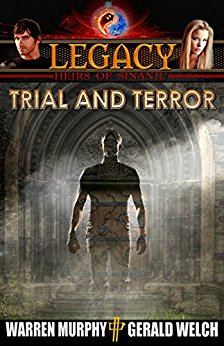
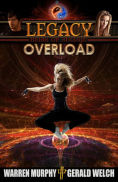
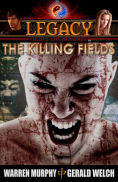
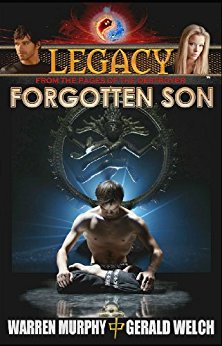
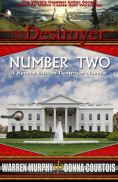
Pingback: Destroyerclub Chat | Destroyerclub
Excellent advice and wonderfully phrased. Sent it to two writer pals whom might actually read it (and “listen”). Loved the closing example, too, about the Gretsky hating cheap sob, and the fact that you saved and used that (twice, if you count this column).
Thanks for sharing with those of us trying to learn.
Ed